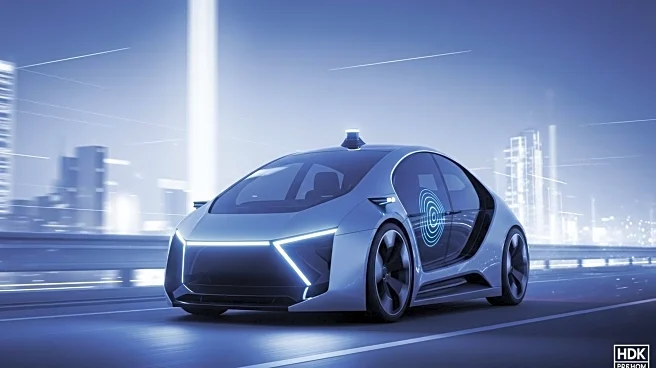What's Happening?
Amazon-owned Zoox is set to begin testing its autonomous vehicles in Washington, DC, marking the company's expansion into its eighth test site. Initially, Zoox will map the city using manually driven Toyota Highlanders equipped with its sensors and self-driving software. The company plans to start testing its autonomous vehicles, with human safety operators, later this year. Zoox has been expanding beyond its original base in Silicon Valley, now operating hundreds of test vehicles in cities like Austin, Atlanta, Los Angeles, Las Vegas, Miami, San Francisco, and Seattle. The company is also working towards launching a commercial robotaxi service, having recently started a free robotaxi service in Las Vegas and testing custom self-driving vehicles in San Francisco.
Why It's Important?
The expansion of Zoox's testing to Washington, DC, underscores the growing interest and investment in autonomous vehicle technology. This move could significantly impact urban transportation, offering more flexible and potentially safer transport options. For Zoox, this expansion is a step towards launching a commercial robotaxi service, which could disrupt traditional taxi and ride-sharing markets. The development also highlights the regulatory challenges that companies face in deploying autonomous vehicles, as Zoox must secure exemptions and approvals from federal authorities. Success in Washington, DC, could pave the way for broader adoption of autonomous vehicles across the U.S., influencing public policy and urban planning.
What's Next?
Zoox is expected to continue expanding its testing and operational capabilities in Washington, DC, with plans to increase its fleet size over time. The company is also working on meeting regulatory requirements to launch its commercial robotaxi service. This includes obtaining broader exemptions from the National Highway Traffic Safety Administration to deploy its custom, driverless vehicles commercially. As Zoox progresses, reactions from local governments, transportation agencies, and the public will be crucial in shaping the future of autonomous vehicle deployment in urban areas.










